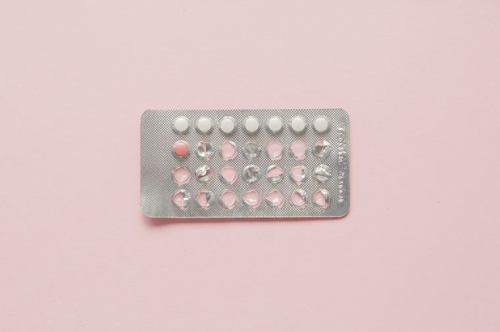There are plenty of opinions as to what the most effective and safe form of birth control is, but new research shows that despite packing lower levels of hormones than in the past (high levels of estrogen have been linked to blood clots and stroke), some methods may increase a woman’s odds for developing breast cancer—potentially by as much as 20 percent.
Of the 1.8 million Danish women under age 50 followed for the study, 11,517 were diagnosed with breast cancer during a nearly 11-year time period. The results found that for every 100,000 women involved in the study who used hormonal contraception, 68 annual cases of breast cancer resulted, whereas for 100,000 nonusers, there were 55 cases. So, researchers hypothesize that hormonal birth control is connected to an estimated 13 additional cases per 100,000 women per year, or a 20 percent increased risk—regardless of the method of choice, whether in the form of a pill, vaginal ring, or IUD that contain hormones.
“Gynecologists just assumed that a lower dose of hormone meant a lower risk of cancer. But the same elevated risk is there.” —Dr. Marisa Weiss, founder of breastcancer.org
“This is an important study because we had no idea how the modern day pills compared to the old-fashioned pills in terms of breast cancer risk, and we didn’t know anything about IUDs,” Dr. Marisa Weiss, an oncologist who founded the website breastcancer.org, told The New York Times. “Gynecologists just assumed that a lower dose of hormone meant a lower risk of cancer. But the same elevated risk is there.”
Weiss notes that the elevated risk is small, but it’s still measurable: According to the NYT, this particular study didn’t take note of factors like physical activity, alcohol use, and breastfeeding, which could all play a role in the risk of the onset breast cancer, but in Weiss’ mind, the increase in breast cancer risk from hormonal contraception still “a significant public health concern.”
But even with the study’s scary new findings juxtaposed to already-known risks, like taking a toll on your gut health and being linked to depression, it’s important to note that hormonal contraceptives still offer a number of health benefits. In addition to regulating the menstrual cycle and reducing migraines, mood swings, and acne, previous research has shown the these medications can also decrease the risk of other cancers.
“Non-contraceptive benefits of birth control pills include decreased risk of ovarian and endometrial cancers, while women who are prone to forming ovarian cysts may have a decreased risk of cyst formation while they are on the pill,” says Dr. Rebecca Nelken, an assistant clinical professor of OB/GYN at the University of Southern California.
If you don’t feel safe taking hormonal birth control, the process to weaning your body off is straightforward. From there, discuss other safe options with your doctor, including a hormone-free IUD, condoms, a diaphragm, or even a fertility app. It’s your body, so take the time to find the right—and healthiest!—option for you.
This app might help you get off the pill once and for all. Also, here’s why more women are turning to natural birth control options.
Sign Up for Our Daily Newsletter
Get all the latest in wellness, trends, food, fitness, beauty, and more delivered right to your inbox.
Got it, you've been added to our email list.











